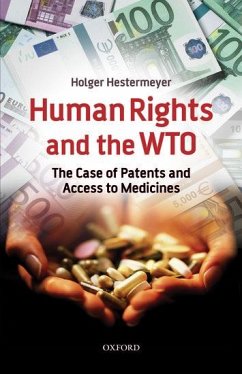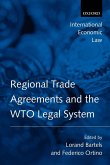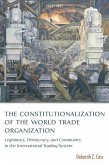Holger P. Hestermeyer was awarded one of the 2006 Otto Hahn Medals of the Max Planck Society for his doctorate
This book examines one of the most controversial aspects of the world trading systems: patents and access to medication. It looks at the claim that international trade law imposes rules that result in exclusive rights of pharmaceutical companies and high prices of medication, preventing access to new medication for diseases such as AIDS, anthrax, or bird flu. The book explains the issues involved in an accessible way and offers approaches to tackle the issue of how to better
accommodate human rights in the trading system.
The international trading system has come under increasing attack by activists as being in conflict with human rights law. Others have defended the system as contributing more to the fulfilment of human rights than many other areas of international law. This study examines the alleged conflict of WTO law with international human rights law, using one of the most prominent examples of such a conflict: that between international patent law, ie the TRIPS Agreement, and access to
medication as guaranteed eg by the International Covenant on Economic, Social and Cultural Rights. This highly controversial political issue of the appropriate use of international patent law on life saving medicines gained the world's attention during the discussion about the price of AIDS medication, but
recent instances also include the availability of the patented medication for bird flu and for anthrax.
The book discusses both the patent law and the international human rights law involved in great depth, distinguishing between obligations under different human rights instruments and including a highly readable introduction into both areas of law. It then explains the concept of conflict between legal regimes and why patent law and human rights law are in conflict. The current state of international law on the conflict between legal regimes and the origin of such conflicts is analyzed, covering
such issues as hierarchy in international law and introducing the concept of 'factual hierarchy'. The book then turns to the role of human rights law in the WTO system, concluding that such law currently is limited to aiding the interpreting of the WTO agreements. It shows how a further integration
of human rights law could be achieved and describes the progress made towards accommodating human rights concerns within the TRIPS Agreement, culminating in the first ever decision to amend a core WTO Agreement in December 2005.
Hinweis: Dieser Artikel kann nur an eine deutsche Lieferadresse ausgeliefert werden.
This book examines one of the most controversial aspects of the world trading systems: patents and access to medication. It looks at the claim that international trade law imposes rules that result in exclusive rights of pharmaceutical companies and high prices of medication, preventing access to new medication for diseases such as AIDS, anthrax, or bird flu. The book explains the issues involved in an accessible way and offers approaches to tackle the issue of how to better
accommodate human rights in the trading system.
The international trading system has come under increasing attack by activists as being in conflict with human rights law. Others have defended the system as contributing more to the fulfilment of human rights than many other areas of international law. This study examines the alleged conflict of WTO law with international human rights law, using one of the most prominent examples of such a conflict: that between international patent law, ie the TRIPS Agreement, and access to
medication as guaranteed eg by the International Covenant on Economic, Social and Cultural Rights. This highly controversial political issue of the appropriate use of international patent law on life saving medicines gained the world's attention during the discussion about the price of AIDS medication, but
recent instances also include the availability of the patented medication for bird flu and for anthrax.
The book discusses both the patent law and the international human rights law involved in great depth, distinguishing between obligations under different human rights instruments and including a highly readable introduction into both areas of law. It then explains the concept of conflict between legal regimes and why patent law and human rights law are in conflict. The current state of international law on the conflict between legal regimes and the origin of such conflicts is analyzed, covering
such issues as hierarchy in international law and introducing the concept of 'factual hierarchy'. The book then turns to the role of human rights law in the WTO system, concluding that such law currently is limited to aiding the interpreting of the WTO agreements. It shows how a further integration
of human rights law could be achieved and describes the progress made towards accommodating human rights concerns within the TRIPS Agreement, culminating in the first ever decision to amend a core WTO Agreement in December 2005.
Hinweis: Dieser Artikel kann nur an eine deutsche Lieferadresse ausgeliefert werden.








